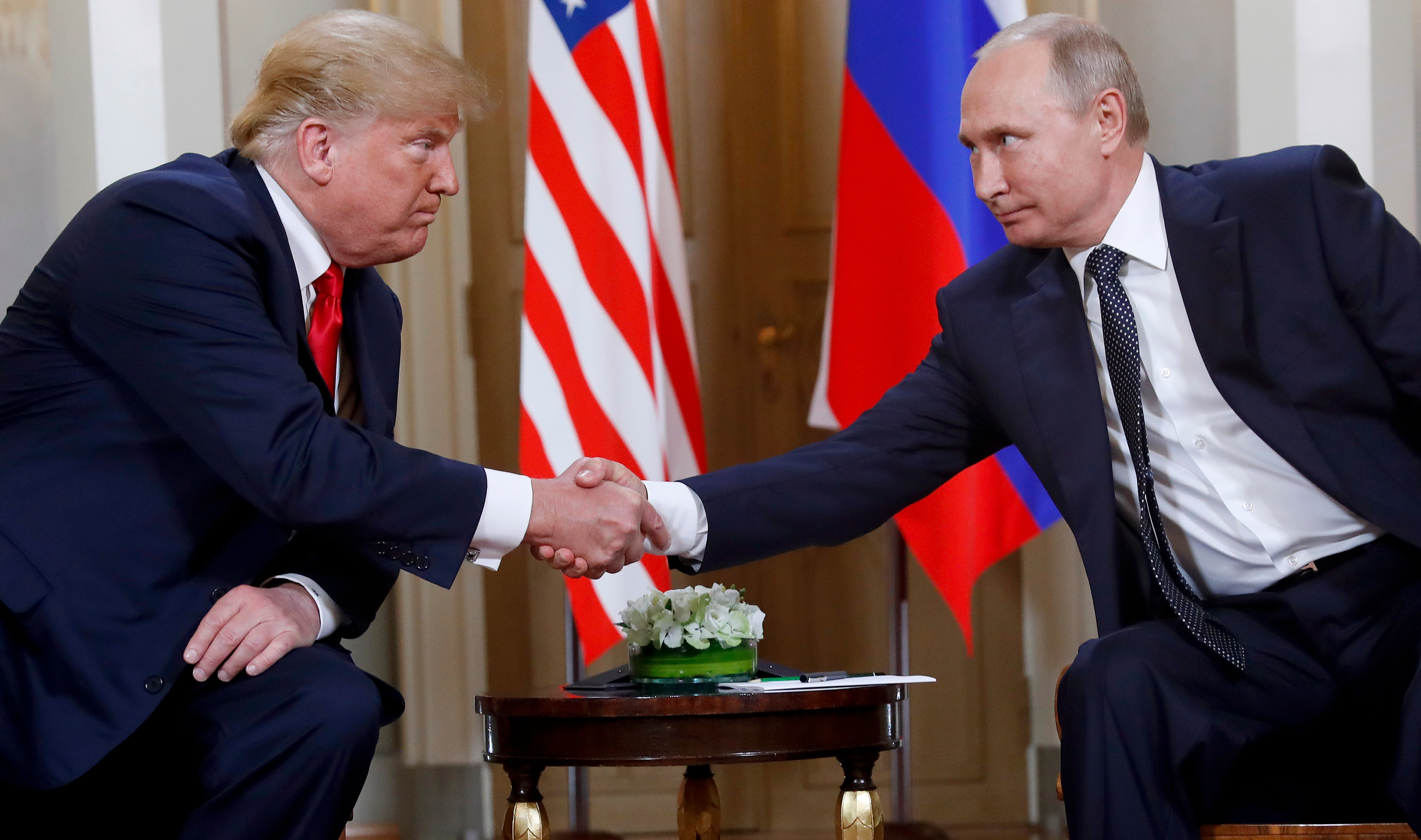Trump reveals where and when he will meet Putin for Ukraine peace talks

Donald Trump has said he will meet with Russian President Vladimir Putin next Friday to discuss the war in Ukraine.
Putin is expected to use the summit to set out Russia’s demands for a ceasefire deal.
Speaking to reporters at the White House on Friday, Mr Trump admitted any peace deal may involve “some swapping of territories”.
But Ukraine’s Volodymyr Zelensky hit back, vowing he would not cede land, saying: “Ukrainians will not give their land to occupiers.”

When and where are talks happening?
The talks are set to happen on Friday, August 15 in Alaska.
“The highly anticipated meeting between myself, as President of the United States of America, and President Vladimir Putin, of Russia, will take place next Friday, August 15, 2025, in the Great State of Alaska,” President Trump declared on Truth Social.
The meeting between the two leaders will be the first US-Russia summit since 2021, when former US President Joe Biden met Mr Putin in Switzerland.
However, critics pointed out that Russia once laid claim to the state of Alaska at the beginning of the 1770s, where they mercilessly exploited Alaskan natives to hunt fur for the Russians, and nationalists have long wanted to take it back.
The agreement to meet comes after Mr Trump’s growing frustration with Mr Putin’s refusal to halt Russia’s military offensive.
The US president had threatened to impose new sanctions and tariffs from Friday against Moscow and countries that buy its goods unless the Russian leader agreed to end the war. Itis not yet clear whether those sanctions would still go ahead or have been delayed.
What will they discuss?
The two presidents are expected to discuss the war in Ukraine and Russia’s demands if a ceasefire is to be agreed.
It could lead to a breakthrough in President Trump’s effort to end the conflict, after he vowed during his election campaign to end the war in 24 hours of taking office.
But there is no guarantee it will stop the fighting since Moscow and Kyiv remain far apart on their conditions for peace.
What has Trump said?
Mr Trump told reporters at the White House on Friday that he couldn’t announce where or when the meeting would take place, but he would do so soon and suggested the talks would come before any discussion involving Ukrainian President Volodymyr Zelensky.
But shortly after, he announced it would take place in Alaska on 15 August.
The US president has said a peace deal may involve the “swapping of territories” between Russia and Ukraine.
“We’re going to get some back. We’re going to get some switched. There will be some swapping of territories to the betterment of both,” he said.
What has Russia said?
Russia wants to discuss its demands for a ceasefire deal, including Ukraine giving up two eastern regions and its sovereignty over Crimea.
The Kremlin confirmed the summit in an online statement and said the two leaders would “focus on discussing options for achieving a long-term peaceful resolution to the Ukrainian crisis”.
“It seems entirely logical for our delegation to fly across the Bering Strait simply, and for such an important and anticipated summit of the leaders of the two countries to be held in Alaska,” President Putin’s foreign affairs adviser, Yuri Ushakov, said in a statement posted to the Kremlin’s news channel.
What has Zelensky said?
Ukrainian President Volodymyr Zelensky has said the planned summit between Mr Trump and Mr Putin, would lead to “dead solutions” if the deal excluded Kyiv.
In a statement posted to Telegram, Zelensky said Ukraine “will not give Russia any awards for what it has done” and that “Ukrainians will not give their land to the occupier.”
“The answer to the Ukrainian territorial issue is in the Constitution of Ukraine. No one will deviate from this.”
He added: “Any solutions that are without Ukraine, are at the same time solutions against peace. They will not bring anything. These are dead solutions, they will never work.”
Ukrainian Foreign Minister Andrii Sybiha has also said Ukraine remains open to “meaningful dialogue” but warned “Russia must not be rewarded for starting this war”.




